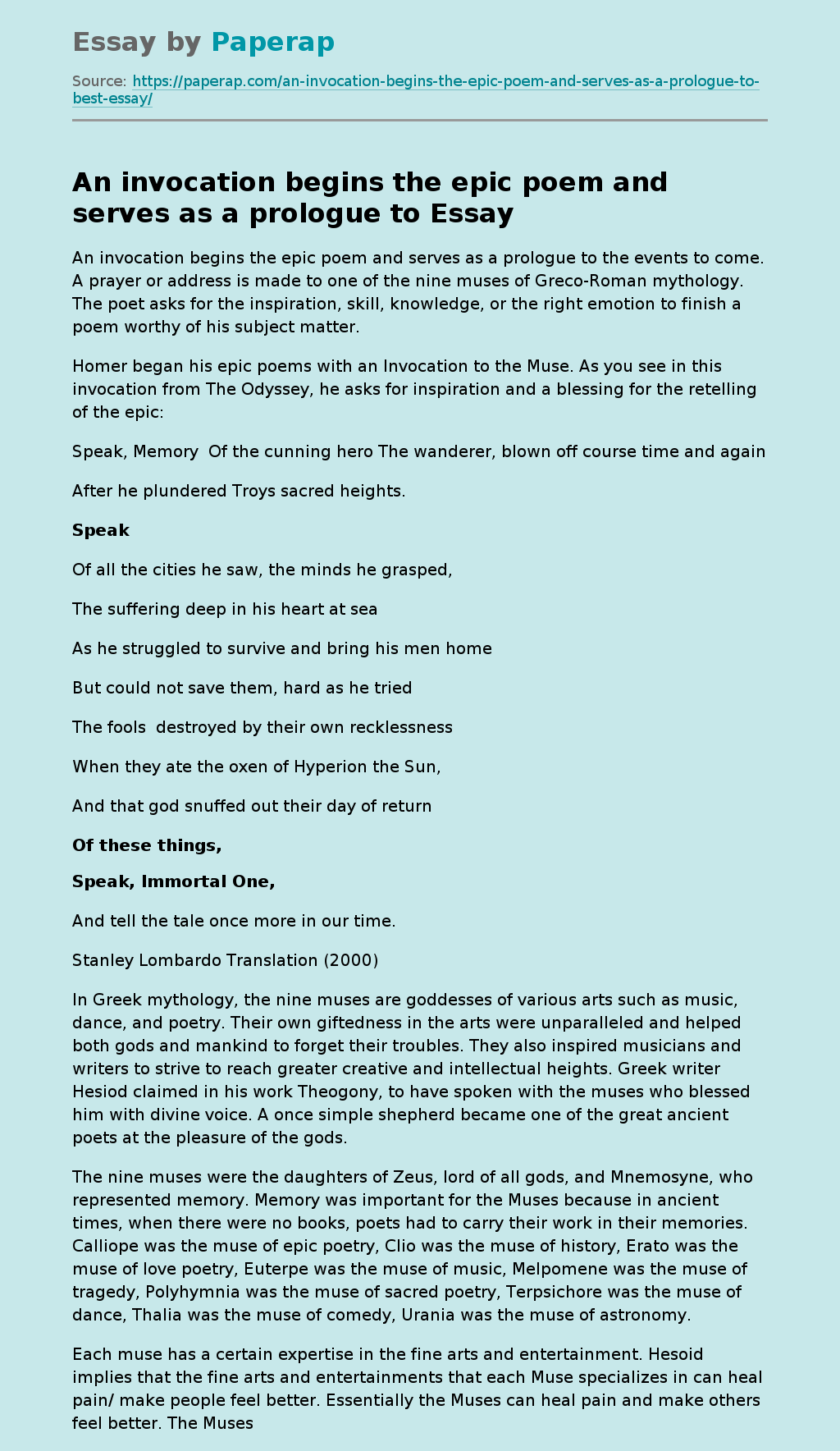An invocation begins the epic poem and serves as a prologue to
An invocation begins the epic poem and serves as a prologue to the events to come. A prayer or address is made to one of the nine muses of Greco-Roman mythology. The poet asks for the inspiration, skill, knowledge, or the right emotion to finish a poem worthy of his subject matter.
Homer began his epic poems with an Invocation to the Muse. As you see in this invocation from The Odyssey, he asks for inspiration and a blessing for the retelling of the epic:
Speak, Memory Of the cunning hero The wanderer, blown off course time and again
After he plundered Troys sacred heights.
Speak
Of all the cities he saw, the minds he grasped,
The suffering deep in his heart at sea
As he struggled to survive and bring his men home
But could not save them, hard as he tried
The fools destroyed by their own recklessness
When they ate the oxen of Hyperion the Sun,
And that god snuffed out their day of return
Of these things,
Speak, Immortal One,
And tell the tale once more in our time.
Stanley Lombardo Translation (2000)
In Greek mythology, the nine muses are goddesses of various arts such as music, dance, and poetry. Their own giftedness in the arts were unparalleled and helped both gods and mankind to forget their troubles. They also inspired musicians and writers to strive to reach greater creative and intellectual heights. Greek writer Hesiod claimed in his work Theogony, to have spoken with the muses who blessed him with divine voice.
A once simple shepherd became one of the great ancient poets at the pleasure of the gods.
The nine muses were the daughters of Zeus, lord of all gods, and Mnemosyne, who represented memory. Memory was important for the Muses because in ancient times, when there were no books, poets had to carry their work in their memories. Calliope was the muse of epic poetry, Clio was the muse of history, Erato was the muse of love poetry, Euterpe was the muse of music, Melpomene was the muse of tragedy, Polyhymnia was the muse of sacred poetry, Terpsichore was the muse of dance, Thalia was the muse of comedy, Urania was the muse of astronomy.
Each muse has a certain expertise in the fine arts and entertainment. Hesoid implies that the fine arts and entertainments that each Muse specializes in can heal pain/ make people feel better. Essentially the Muses can heal pain and make others feel better. The Muses have inspired many artists and writers. In Hesoids writing he says that the muses, with that name Callope is his favorite Muse.
An invocation begins the epic poem and serves as a prologue to. (2019, Nov 27). Retrieved from https://paperap.com/an-invocation-begins-the-epic-poem-and-serves-as-a-prologue-to-best-essay/

